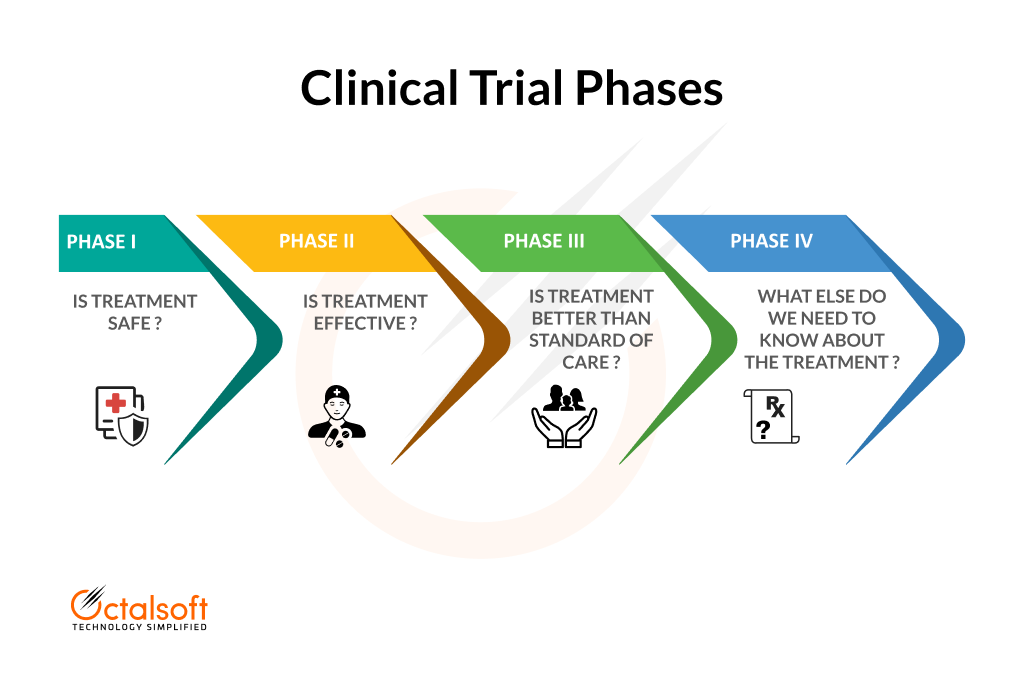Pharmaceutical businesses consider clinical trial technology solutions to save costs, streamline study management, and preserve current study information as clinical trials become more complicated. So that data can be gathered as securely and fast as possible, technology has advanced to the point where it can now more precisely control how quickly a study may begin, how quickly it is run, and how quickly patients access medicine. Here is where CTSM steps in.
Clinical Trial Supply Management (CTSM) is the general name for a critical clinical trial technology solution that is essential to the performance of a clinical study.
Even though the original technology was created many years ago, Octalsoft has been at the forefront of innovation and advancements, enabling sites, sponsors and CROs to stay up with the growing intricacy of study design. Large-scale, intricate, blinded worldwide trials that enroll tens of thousands of patients and span many continents under the supervision of a central site are becoming increasingly practical.
CTSM in Clinical Trials
Drug dosage and dispensing are managed by a CTSM system, which also effectively and precisely automates the delivery and replenishment of investigational products (IP) to depots, sites, and direct-to-patient.
Global patient participation in trials has become possible due to the automation of supply and logistics management. When necessary, modern systems can be swiftly adjusted and set up. Weeks can be cut off from the trial period by this automation, saving money and eventually allowing medicines to be introduced to the market sooner.
Complex studies of today demand that CTSM systems include advanced features like supply management, unblinding, and randomization in addition to the fundamental functions of supply management and randomization. Some other functions of an efficient CTSM are-
- Treatments are assigned in predetermined ratios among several stratification or balancing parameters (e.g., age groups, illness severity, sex, etc.).
- Enrollment and administration of cohorts for parallel and sequential cohorts; tolerant
- Precise computation of intricate patient dosage regimens
- Shipment straight to the patient with the option to dispense from site stock or from the depot
- IP replenishment that is automatic and adjustable to prevent locations from running out of experimental product
- Tracking hiring, supply availability, and forecasts in real-time; setting up replenishment parameters
- The ability to export research data (such as past supply and shipping, dosage assignments, and patient status) and retrieve it depending on the user's blinded status
How can a CTSM help with Trial Supply Management
In the context of supply management, CTSM aims to achieve three things:
- To guarantee that adequate amounts of the appropriate product are available on-site at the appropriate times, and
- To reduce waste
- To boost productivity while upholding patient safety and study blinds
In clinical research decades ago, exploratory medication kits frequently contained all the drugs required for the duration of the study and were tagged with the patient's randomization ID. A significant amount of experimental product was wasted if the patient was not recruited or if they withdrew from the study early.
Early CTSM solutions assisted in reducing this waste by only storing items that would be needed in the near future on-site and automatically requesting extra IP for the site depending on the patient's treatment arm and visit schedule. Patients no longer required to be pre-allocated blinded, uniquely identified site inventory since CTSM could tell the research coordinator or pharmacist which kit to give at each visit.
In addition to setting alerts for risk conditions like low depot supply, shipments that have not been received in a timely manner, and face impending expiration, modern CTSM also enables end users with study expertise and understanding to configure multiple supply plans for various site profiles and types of inventory.
One can even project and output future inventory needs for a site or study over time to more effectively schedule manufacturing and labeling efforts. To give more inventory flexibility, supplies that are similar across several studies can be combined at the depot and site levels. In addition to reducing human labor, direct data transmission between CTSM and outside inventory management systems also boosts productivity and data quality.
Modern CTSM is increasingly being used to track not just serialized (numbered) inventory but also bulk (unnumbered) experimental and even supplementary supplies due to the growing ubiquity of these sophisticated technologies. With the addition of supply accountability, returns, and destruction functions, CTSM can now oversee the clinical supply life cycle.
Summary
CTSM is a useful tool for managing clinical studies. Clinical trial supply management guarantees that, every time, the appropriate investigational medication or supplies are given to the appropriate patient at the appointed time. Using skilled personnel and cutting-edge technology is the greatest way to preserve research integrity and guarantee patient safety. All of these need to be used appropriately and consistently to live up to expectations and achieve intended results.
With Octalsoft’s CTSM system, you can now efficiently manage the complex tasks of end-to-end clinical trial supplies and logistics processes while ensuring compliance with regulations and Good Manufacturing Practices (GMP).
Get access to robust inventory management tools that automate the depot management processes of tracking and tracing inventory and shipments, across multiple clinical sites and warehouse locations. With Integrated workflows along Customs and procurement modules, you get the ability to manage other imperative processes seamlessly. Want to know more about Octalsoft’s CTSM system?



